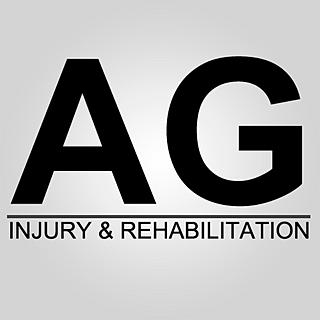What's the difference between a Physiotherapist and a Sports Therapist?
- Arun Gray
- May 10, 2018
- 3 min read

Clients often ask me what the difference is between a Physiotherapist and a Sports Therapist, and which practitioner would be best to consult about their injury. The simple answer is that both professionals are trained and insured to treat musculoskeletal (MSK) disorders, the only difference really being their end goals. In this article I will give an overview of the two professions and outline their similarities and differences to help identify which you might need to consult for your condition(s)
Both Physiotherapists and Sports Therapists are highly educated in dealing with MSK disorders, treating injuries and managing pain through hands on treatments often referred to as "physical/manual therapy".

Both therapists are about to:
- Assess and diagnose injuries
- Deliver a rehabilitation plan to maximise recovery and promote physical independence
- Teach patients how to reduce their injuries and manage chronic pain
- Implement rehabilitation programmes
- Educate patients on staying fit and reducing injury in the future
Some treatment approaches are also shared such as:
- Massage, manual therapy and joint mobilisations
- Electrotherapy modalities
- Taping
- Stretching methods
- Biomechanical analysis
- Acupunture
- Exercise prescription
Sports Therapy
Sports Therapists are experts in musculoskeletal disorders/injuries. They treat issues using hands-on treatments and rehabilitation. Sports therapists undergo an intensive three year degree course which focuses primarily on the MSK system and on restoring mobility to movement to relieve pain and increase quality of life.

The regulating body of Sports Therapists is The Society of Sports Therapists (SST), who describe the profession as:
"An aspect of healthcare that is specifically concerned with the prevention of injury and the rehabilitation of the patient back to optimum levels of functional, occupation and sport specific fitness, regardless of age and ability. It utilises the principles of sport and exercise sciences incorporating physiological and pathological process to prepare the participant for training, competition and work"
Physiotherapy
Physiotherapy is a healthcare profession regulated by the Heath and Care Professions Council (HCPC). For a physiotherapist to be classified as a Chartered Physiotherapist, they must also be a full member of the Chartered Society of Physiotherapists (CSP).

The role of a Physiotherapist is to help people affected by illness, injury or disability through exercise, manual therapy, education and advice. They maintain health for people of all ages, helping patients to manage pain and prevent disease.
During their training, which often takes place in a hospital setting, Physiotherapists gain the knowledge and skills to manage a range of conditions such as:
- Neurological conditions (stroke, multiple sclerosis, Parkinson's)
- Neuromusculoskeletal
- Cardiovascular (chronic heart disease, heart attack)
- Respiratory (asthma, chronic obstructive pulmonary disease, cystic fibrosis)
After graduation, Physiotherapists continue their work in health care and develop specialisms in both health and social care.
The Key Differences
As discussed, the two professions share many similarities and overlap in the range of treatment methods available. This often confuses patience when decided which practitioner to see. However the key differences to keep in mind are:
- Physiotherapists have a broad knowledge on illnesses and diseases from their work in hospital settings. They are experts in getting patients back to being able to safely complete daily activities.
- Sports Therapists spend a lot of their education looking at how sport and exercise effects a person's life. Rather than helping a patient get back to normal daily living, they aim to get the patient back to their pre-injury level of activity.
- Physiotherapists are accessible through the NHS as well as privately, which does mean you may be able to be referred through your GP, however current waiting lists are around 10 weeks for treatment.
- Sports Therapists are generally working privately so can be accessed much quicker, at a cost.
When it comes to typical injuries, both practitioners are able to treat most MSK conditions. If you are unsure please feel to contact us and have a chat about your condition before booking an appointment.





Comments